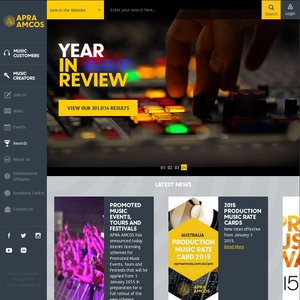Hi ozbargainers
We own a hair salon. We got music in the background , TV in the waiting area for our customers. For years there is no problem. Recently Australian Performing Rights Association (APRA) forced us to sign a licence agreement saying we have to pay them licensing fees for the playing of music and TV at our shop.
Now they don't come cheap, we have multiple devices and they want us to pay $400+ annually . It is just another expense we don't need on top of all the pressure we have from economy downturn
Now we are thinking of just ignoring the invoices because they are just daylight robbery, money grabbing exercise.
Has any business owner out there been fined for not paying the fees? Please share your experience.

Whirlpool Thread (bit old, still relevant)
http://forums.whirlpool.net.au/forum-replies.cfm?t=984824
Copyright Website - Few answers (mentions hairdressing salons specifically)
http://www.copyright.org.au/admin/cms-acc1/_images/191679342…